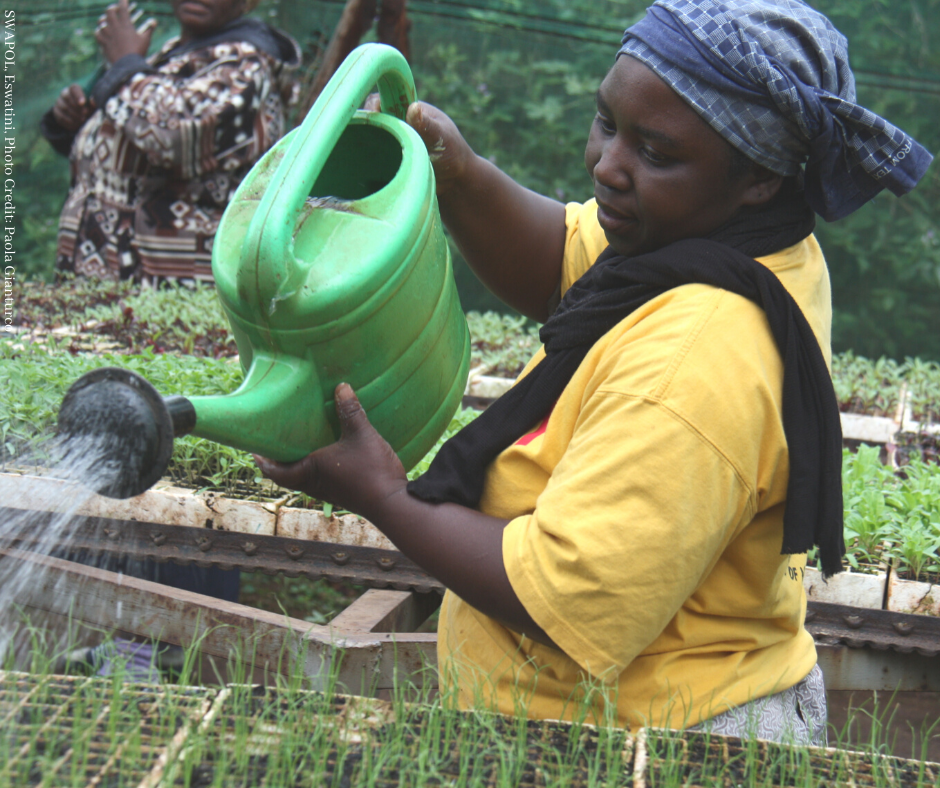Turning the Tide of HIV and AIDS in the Context of Climate Change
Our planet is facing a climate emergency. This is a fact that communities around the world are confronting in very tangible ways each day. For many years, our partners across sub-Saharan Africa have been reporting about and responding to the impact of changing weather patterns – droughts leading to crop failures and food shortages, unpredictable seasons leading to floods, wide-spread and ongoing power outages, rising costs of food and fuel, and in extreme cases, natural disasters.
It’s not difficult to imagine the impact that all of these crises have on human lives and livelihoods. Vulnerable populations, like individuals and families affected by HIV and AIDS, experience this impact more intensely. Those who are HIV positive need, among other things, a reliable source of nutritious food and clean water to adhere to medication, and dependable access to healthcare. Grandmothers taking care of children orphaned by AIDS need to be able to provide financially, socially and emotionally for the children in their care, and tend to their own needs as well.
While their mission statements may not explicitly mention climate change as an area of focus, mitigating the effects of changing weather patterns is ingrained in the holistic care and resilience-building work that our community-based partners are doing. Our partners are particularly adept at expanding and adapting their services to support communities through the ongoing effects of climate change because they are trusted fixtures in the community. Staff members and volunteers live in the communities where they work and have developed strong relationships with the individuals and families in their care. They listen to the needs their clients express, and work together to find solutions that make sense for their clients’ lives and the community as a whole.

For instance, grandmothers grow gardens to feed the children in their care. It’s part of their household access to food, as well as a source of income for grandmothers, and in many cases gardening is also an integral component to support groups. Community-based organizations are working to train gardeners and farmers on growing crops that are more resistant to drought. They are also providing additional food security to families in the community by distributing more food baskets. To combat the increasing price of fuel, some grandmothers groups are making fuel-efficient stoves as an income-generating project.
Other communities have experienced heavier than normal rains which have caused flooding and destroyed infrastructure, including roads that children rely on to get to school. Community-based organizations respond by mobilizing to re-build after flooding and ensure the safe passage of children to school.

In moments of climate crises, like when Cyclone Idai struck Mozambique, Malawi and Zimbabwe this spring, community-based organizations displayed their expertise by responding holistically, not just to the immediate basic needs but to the many concurrent problems that accompany natural disasters. They provided psychosocial support to those experiencing trauma from the devastation, provided home-based care, ensured that those in need of healthcare received medical attention, and ensured that people had shelter.
After the initial emergency period following Cyclone Idai had passed, many of the international organizations left, yet their remains so much still to be done. Community-based organizations’ response to Cyclone Idai is ongoing, helping to re-build in every sense of the word.
The world deserves urgent political action and momentum around climate change. Our partners deserve the resources to continue, and expand, the comprehensive support they are able to offer to their communities.
From the Granny Bulletin, November 2019, the Stephen Lewis Foundation
